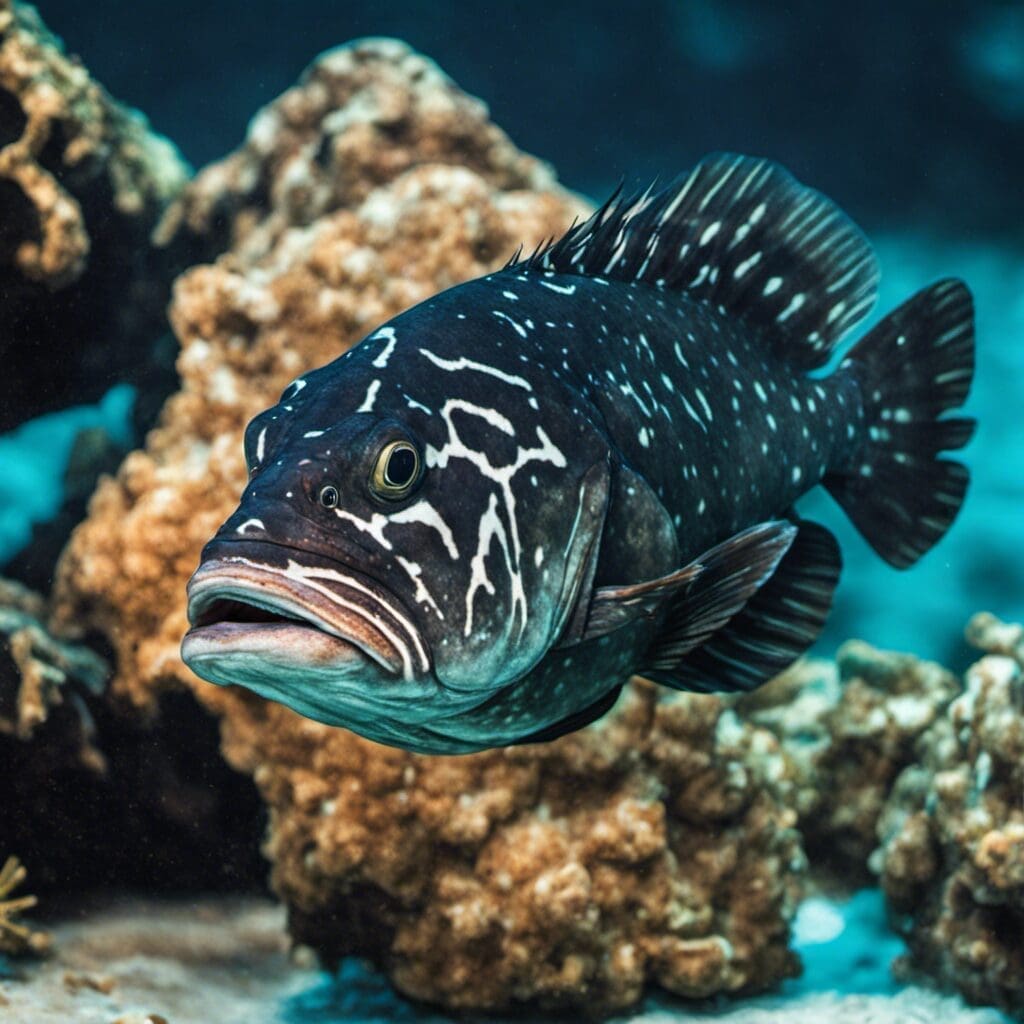Introduction
The Black Grouper (Mycteroperca bonaci) is a top-level predator from the family Serranidae, commonly found in the warmer parts of the Atlantic, including the Gulf of Mexico and the Caribbean.
Conservation Status
The Black Grouper has been listed as Near Threatened by the International Union for the Conservation of Nature (IUCN). Efforts have been made to regulate commercial and recreational fishing in many regions to protect this species from overfishing.
Statistics
| Statistic | Average | Range |
|---|---|---|
| Length | 70 cm | 60 – 150 cm |
| Weight | 25 kg | 3 – 100 kg |
| Average Lifespan | 30 years | – |
Distribution
Black Groupers are found broadly distributed across the Western Atlantic from Massachusetts, USA and Bermuda to southern Brazil. They are notable non-migratory species and are commonly found in different regions at different times of the year.
Habitats
Black Groupers usually prefer warmer saltwater environments. They inhabit both shallow inshore areas and offshore waters as deep as 100 meters. They prefer temperatures ranging from 18 to 29 degrees Celsius.
When and Where to See
Black Groupers are seen regularly throughout the year, although they are most abundant from November to March. They tend to be more active during the day.
Best Fishing Locations
- Key West, Florida
- Yucatan Peninsula, Mexico
- Belize Barrier Reef, Belize
- Bahia Honda State Park, Florida
- Jupiter, Florida
- Bimini, Bahamas
- Bay of Campeche, Mexico
- Reefs of the Dry Tortugas, Florida
- Cay Sal Bank, Bahamas
- Banco Chinchorro, Mexico
How to Catch
The most effective baits for catching Black Groupers include live or dead small fish and squid. The best fishing techniques include bottom fishing, handlining, and speargun fishing. Black Groupers are generally best targeted during the day, particularly in the cooler months.
Identification Guide
Black Groupers have a robust body, broad head, and a pointed snout. Their body coloration is dark gray to black and they have fleck-like black marks on their body. Black Groupers can be easily confused with other species in the Serranidae family because of their similar body shape and coloration.
Culinary Information
Black Grouper is known for its delicious taste and firm texture. It can be cooked in a variety of ways such as grilling, pan-frying, and baking. Black Grouper is a good source of proteins, Omega-3 fatty acids, and vitamins.
Additional Information
Black Groupers are solitary creatures with a territorial nature. Their main diet consists of fish and invertebrates. Sharks and larger fish are the natural predators of Black Groupers.

